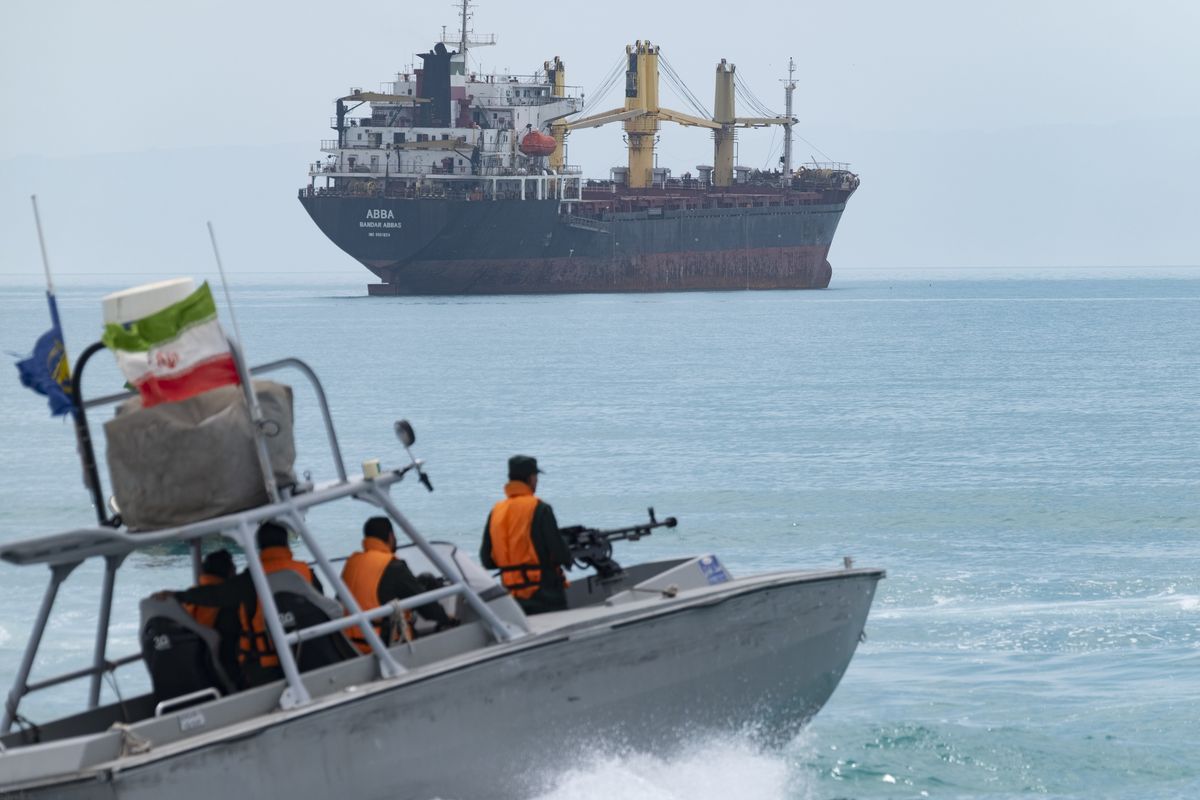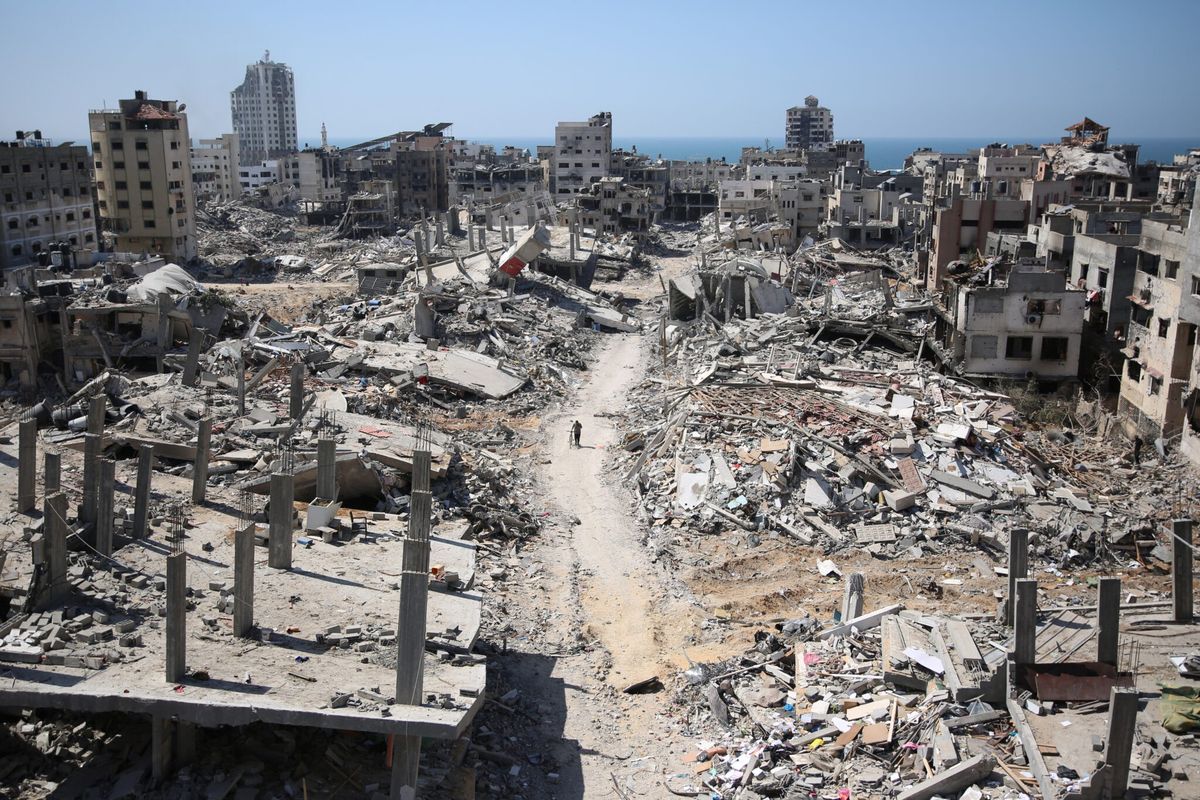The Cipher Brief sat down with Aaron David Miller, Former advisor to Republican and Democratic Secretaries of State on Arab-Israeli negotiations to discuss the potential for reviving Israeli-Palestinian negotiations under the Trump Administration. According to Miller, “The Israeli-Palestinian peace process, can’t be much deader than it is now” and we should expect a “very bumpy and volatile period,” in the short-term.
The Cipher Brief: What are the prospects for a rejuvenation of the peace process under the incoming Trump Administration?
Aaron David Miller: I’d say slim to none. The so-called peace process is not ready for prime time. Neither side is prepared to make decisions on the core issues. There is very little confidence and interest.
Nor is it a forgone conclusion, by any means, that the incoming administration is going to focus heavily on this issue. Let’s be clear, if the embassy is moved to Jerusalem, you can probably hang a “closed-for-the-season” sign on the peace process for a while.
TCB: How could the UN Security Council resolution condemning further Israeli settlements (that the U.S. declined to veto) Israeli-Palestinian negotiations moving forward?
AM: The UN Security Council resolution was unbalanced, and while it probably did not make matters worse, it certainly didn’t improve the prospects. Perhaps by dealing with Jerusalem the way it did – conflating what the Israelis are doing in West and East Jerusalem - it might provide more pressure on the part of the Israelis to encourage the Trump Administration to move the embassy or ambassador to Jerusalem, and perhaps create a greater incentive for the administration to do so. But that may have been in store even without the UN Security Council Resolution.
My own view is that the resolution was both unwise and unwarranted. But the Israeli-Palestinian peace process can’t be much deader than it is now.
TCB: Is a two state solution still feasible today?
AM: In order to have a two state solution, you need to have three things, and right now you don’t have any of them. Number one, you need leaders on both sides who are masters of their political houses and willing to take significant risks. You don’t have it on the Israeli side and you don’t have it on the Palestinian side.
Number two, you need ownership; you need an investment by the leaders to create a situation where it is in their vital interest to pursue a negotiation. Every breakthrough that has been achieved in this conflict occurred without American knowledge or participation. It was only after the parties themselves owned the negotiation or the understandings that they had launched secretly with one another that the U.S. was then able to build on that foundation.
There have already been three breakthroughs. First was between Egypt and Israel - former Israeli Defense Minister Moshe Dayan showed up at the U.S. State Department in October 1977 and basically stunned those working on Middle East issues by telling them that he’d been meeting secretly with Egyptian President Anwar Sadat’s emissary. Second, we know there was an Oslo channel, but we didn’t know it was a decision-making channel. They did that without our help. Third, the Israeli-Jordanian peace treaty was a result of years of discreet, quiet contacts dating back almost 70 or 80 years.
We are important, but we can’t compensate for the lack of ownership.
Finally, you need effective U.S. mediation. We haven’t really had that since President George H.W. Bush and Former Secretary of State James Baker.
You give me one of the first two criteria and the third and I’ll give you a chance to create a serious negotiation that might actually produce something. But we don’t have any of those things right now.
TCB: Are we looking at more of the status quo in the short-term?
AM: Status quo means periods of accommodation punctuated by violence, terror, and instability - more incitement on the Palestinian side and more settlement activity on the Israeli side.
Part of the problem with the Israeli-Palestinian equation is that the status quo is deemed to be manageable by both sides. Put it this way: the risks of changing it outweigh the risks of maintaining it.
But the status quo really isn’t a status quo, because Israelis do more things on the ground and continue to do so. There are developments in the Palestinian arena that consistently create a situation where they are taken farther and farther away from the possibility of entering into a negotiation that would get them what they want.
This will be maintained, and it’s hard to argue that you’re going to see a fundamental change. I don’t know what would be required in order to produce it. Usually, Arab-Israeli agreements are driven by urgency, mostly pain accompanied by the prospects of gain. We have plenty of pain, but not a whole lot of gain.
We’re in for a very bumpy and volatile period. Whether it will be enough to persuade Israelis and Palestinians to change that reality, I doubt it.
TCB: What is the level of coordination between Hamas-and the Palestinian Authority (Fatah) regarding negotiating positions?
AM: Just last week, the Palestinians, under informal Russian auspices in Moscow, agreed to form a unity government and to lay the groundwork for elections. There have been are all kinds of efforts over the last nine years to forge a unified position between Hamas and Fatah but it’s never happened in any meaningful sense. Unity means unity in negotiations, unity of structures on the ground instead of two separate statelets, a unified polity and a monopoly over the forces of violence in Palestinian society. You don’t have that.
It’s a phony unity that is designed for political purposes and serves each party’s interests, but it’s not the kind of unity that can be translated into a useful position in negotiations.
TCB: Will the recent Paris Peace Conference have any impact on negotiations?
AM: No. That was an effort that the U.S. reluctantly participated in. The French wanted to send a message that the international community is lined up behind a two state solution. Former Secretary of State John Kerry had no choice but to go and was there was try to moderate whatever statement emerged.
Look, the UN Security Council resolution, Kerry’s speech, and the Paris Peace Conference add up to something that reminds of a Seinfeld episode that was a show about nothing. They really cannot change the fundamental equation on the ground. Only the Israelis and the Palestinians can do that, and there’s no indication in my mind that they are prepared to.
TCB: Could the Trump Administration break from a two-state solution policy?
AM: We will know soon because someone is going to ask the question: Is a two-state solution – forget whether it’s doable or not – the policy of the U.S. government? Does the U.S. government still believe that a two-state solution is the best outcome? If the answer is “yes, we do,” that’s one answer. If that answer is “no, we don’t, and we’re examining other approaches,” then you’ll begin to know that there has been an actual shift, at least rhetorically, in policy.
The truth is, it’s about time that we tested the proposition of what a Trump Administration is actually going to do. I don’t know how much of an emotionally satisfying experience it will be, but it will be clarified because you have a situation where there is no more candidate, no more nominee, and no more President-elect. There is a President, and that President will be judged on what he says, what he does, and what he doesn’t do.
I can’t tell you how many interviews I’ve done and how many pieces I’ve written about what Donald Trump is going to do. It’s about time we found out.













